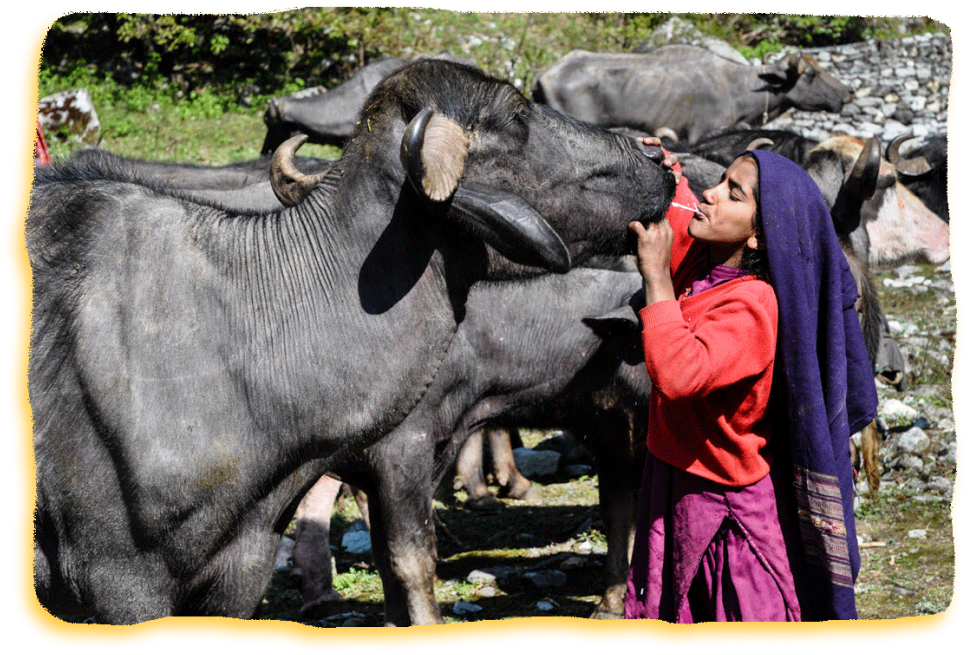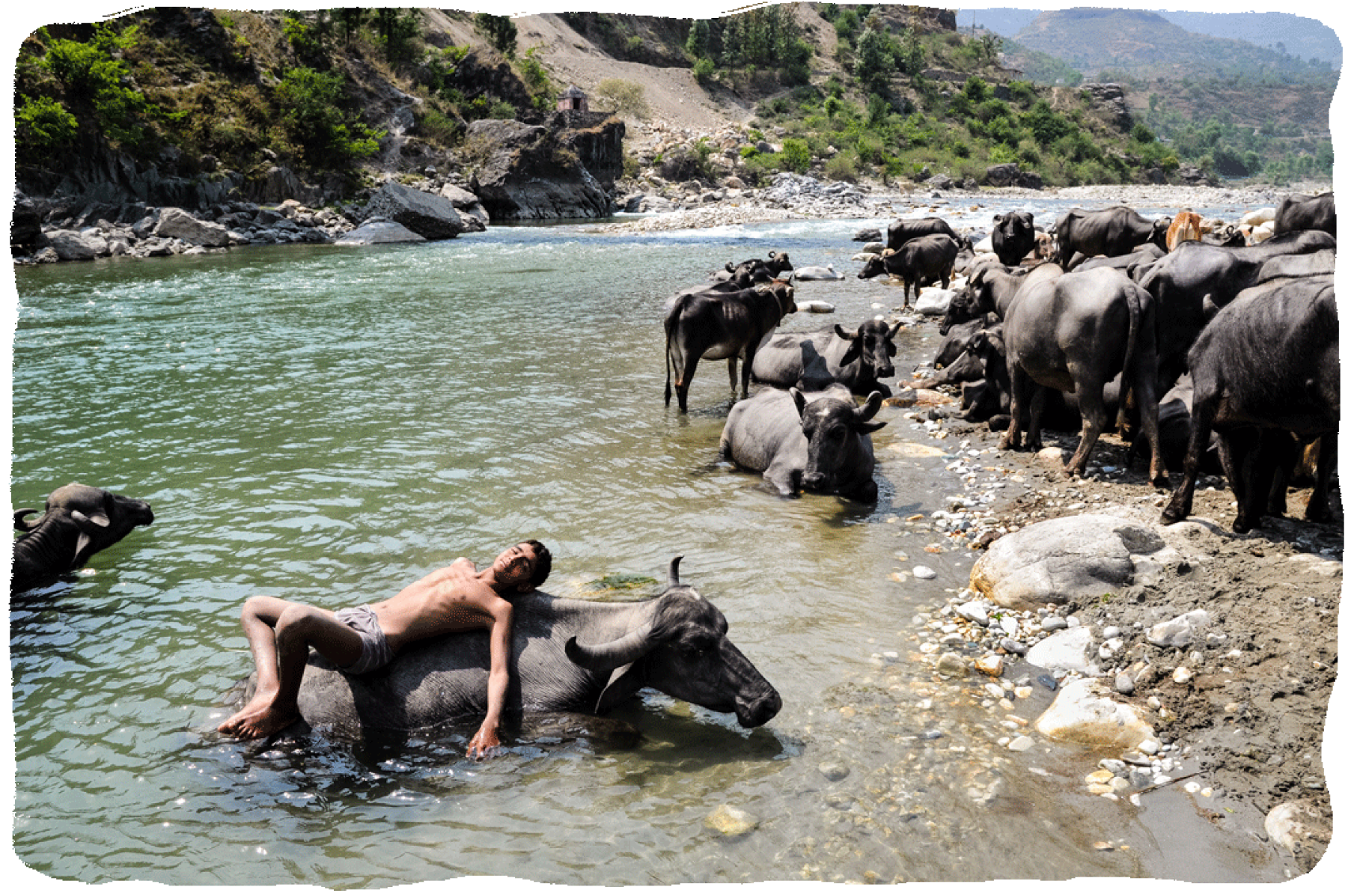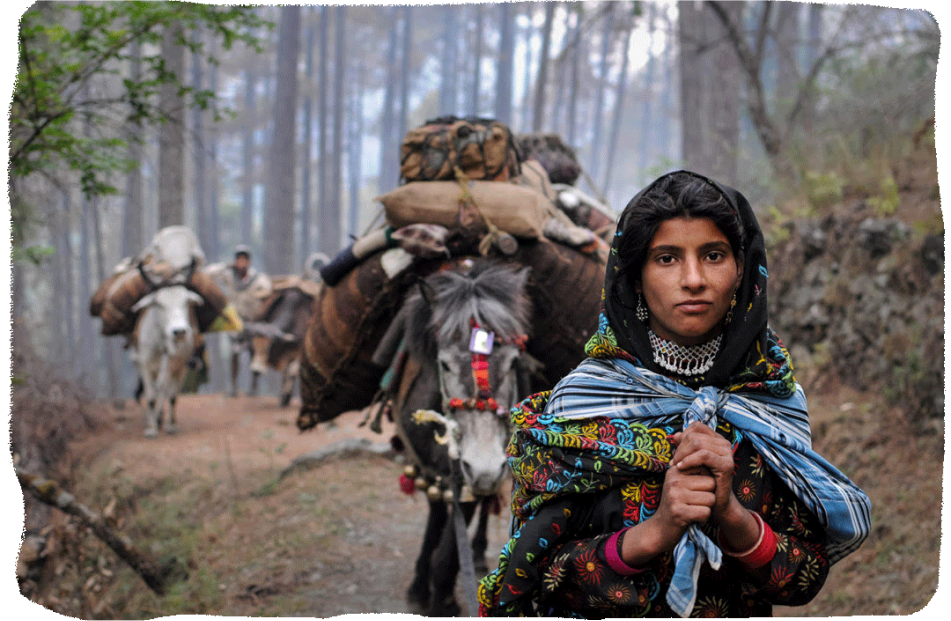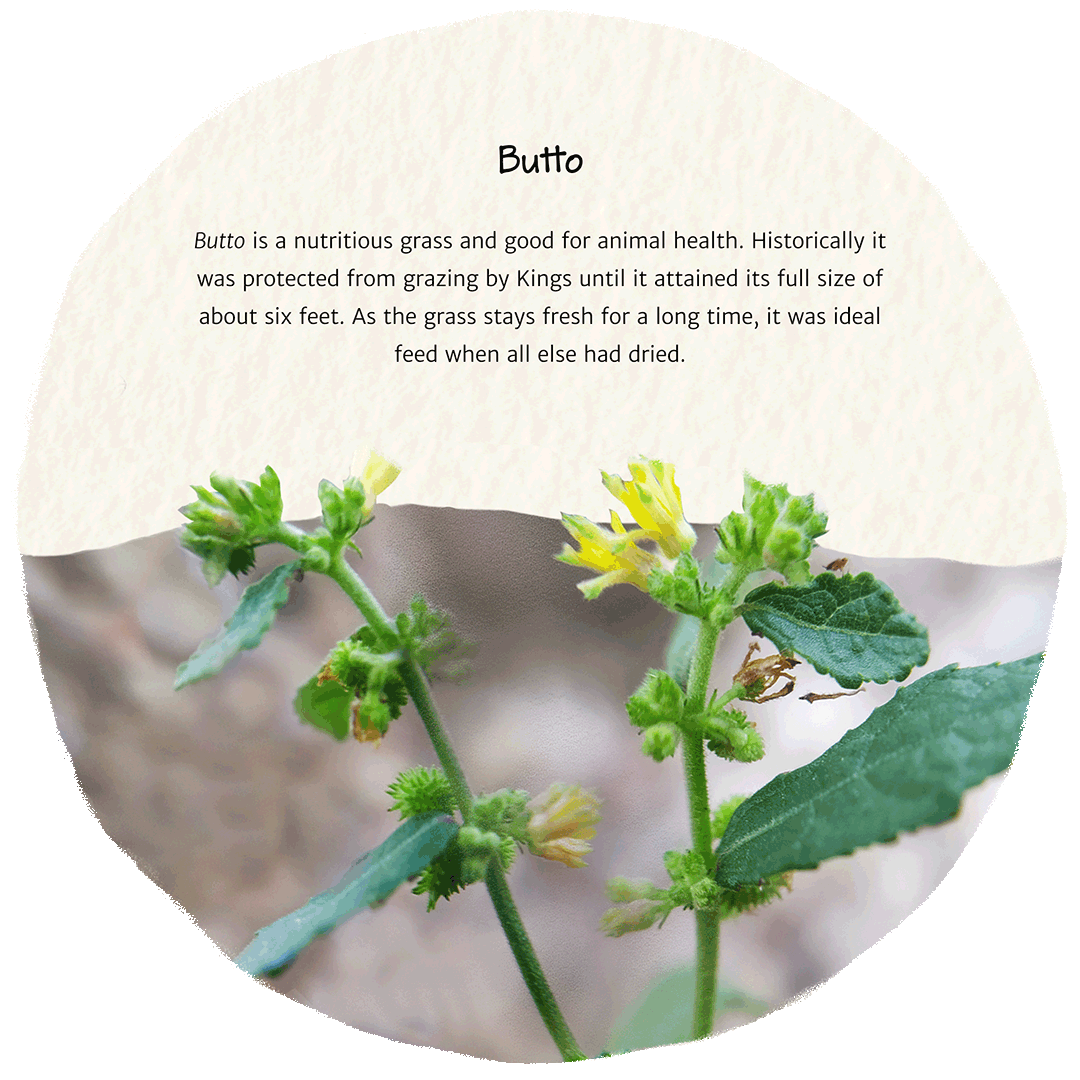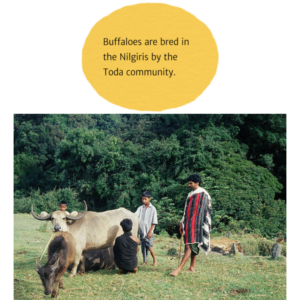Michael Benanav
with Van Gujjars, Uttrakhand
Several Van Gujjar men meet to discuss their best strategy for reaching the high meadows, and avoiding problems with Forest Department rangers along the way.
After a buffalo yearling suffered a broken leg, she was carried up and over a Himalayan pass, to the meadow where her Van Gujjar family would spend the summer. They refused to leave her behind to die.

Seventeen-year-old Mariam lops leaves for her family’s buffaloes to eat, in the Shivalik Hills. Even though she is 20 meters off the ground, she wears no shoes, has no safety rope, and isn’t even holding on to anything. Van Gujjars know that they can’t cut too much off of any one tree, since they need the forest to remain healthy year after year after year, so their herds – and they themselves – can survive year after year after year.
Twelve-year-old Bashi watches her family’s buffalo herd at dawn, while camped along the Asan River in Uttarakhand.



